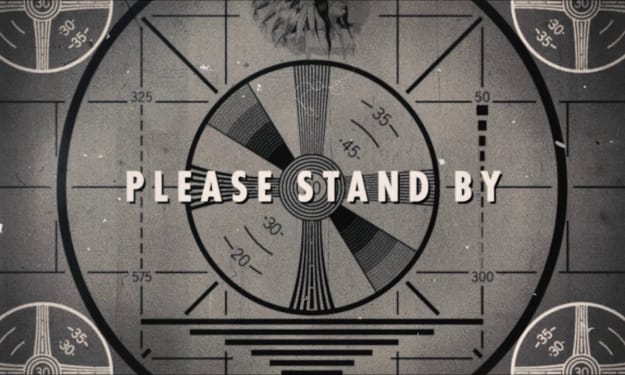UNDERRATED: Helix
In the inaugural installment of UNDERRATED, we talk about disease, human frailty, and elevator music.

Every once in a while, some form of media comes along that grips me so completely that I never stop talking about it ever, to the disdain of anyone who’s ever had to listen to me. Sometimes it’s a book, sometimes it’s a movie, but mostly it’s television, and mostly it’s television that’s been cancelled after one or two seasons.
Enter: UNDERRATED. What I’m looking to do with this series is explore the shows that deserved more seasons. The shows that got cancelled without an ending, or had a rushed ending that made the final episodes bittersweet and hard to watch. Our favorite shows that deserved more than just a small cult following. I’m aiming to boost those shows, explore what’s so great about them, and recommend reasons to watch.
In this inaugural installment of Underrated we’ll be talking about Helix, the short lived Syfy show from 2014 about disease, betrayal, and human folly. So, Helix. What’s it all about? Why did it deserve better? And why am I so obsessed with it?
Synopsis
Season one follows a group of CDC doctors as they investigate a possible disease outbreak at an Arctic research facility. The group consists of doctors Alan Farragut, Julia Walker, Sarah Jordan, and Doreen Boyle. Major Sergio Balleseros joins them. At the research facility, they meet Dr. Hiroshi Hatake and head of security Daniel Aerov (played by Meegwun Fairbrother, a dreamboat and my absolute fav).
Another big player in season one is the Ilaria Corporation, who’s in charge of the genetic engineering research going on at the facility. There are two variants of a virus on the loose in the facility: Narvik-A and Narvik-B. It is unclear at the beginning what the virus was being engineered for: a bioweapon or a genetic transformation.
Why It Worked
When I first watched Helix, it was like nothing I’d ever seen before. I’m not into medical dramas, and while I would call this a bit of a drama, and while it does focus on medical doctors in an emergency, I wouldn’t go so far as to label it a “medical drama”, not in the procedural way we know medical dramas. It’s the story of a virus, and a corporation, and doing the right thing, and finding out who you are. It’s heavily science fiction, yes, but there’s truth to it. It’s very human.
While it deals with biological warfare and genetic engineering, it also addresses family dynamics, romantic entanglements, right versus wrong and moral greyness. It’s involved, and heavily suspenseful, with great characters and just the right amount of fear to drive home the intricate narrative. The plot is strong technically, but employs fragility as allegory, where it presents us a front row seat to human frailty and makes us confront our own mortality.
Why It Deserved Better
Helix was a show teetering on enough of the edge of Avant Garde to be missed by a lot of viewers. Prime example: the elevator music; I can’t explain why it fits perfectly as the intro and throughout the series, but it does. It’s unsettling because it’s so mundane. Helix shows us a rabid environment and tries and fails to soothe us with commonplace music. There’s something Uncanny Valley about it; while Helix has nothing to do with robots, it’s that same uneasiness of something that’s almost but not quite right.
I will admit that Helix lost its way a bit in season two. It’s a strange season, much more so than the first, and the ratings plummeted because of it. It uses cyclical timelines instead of the linear day-by-day count of the first season, and I feel like maybe that put some viewers off. It got a bit convoluted, and stepped away from the biotechnology and disease control elements of the first season to focus on Julia Walker’s story.
All in all, I do like season one more than season two, but that doesn’t mean season two doesn’t have its charms. It’s more complex than the first, dealing more with secrets, corporate espionage, and the cult mentality. It’s intriguing in its own right, and deserves to be enjoyed. If Helix had been allowed to continue, I believe it would have become increasingly complex, culminating in something big and expansive. As for our reality, Helix doesn’t have an ending, and we’ll never know where it was truly headed.
Reasons to Watch
If you like science fiction that presents a little more realistic--but mildly futuristic--view of crisis, I recommend Helix. If you liked movies like Annihilation or Outbreak, you’ll probably like Helix. It presents a real vision of science fiction, with relatable characters and situations, even though the main plot is a deadly outbreak of a lab-made disease. Oh wait.
Essentially, Helix is a good show; it did a lot of innovative things in a time when shows in similar genres like Fargo, The Strand, and The 100 were coming out. In my opinion, it deserves to be witnessed, and not just because Meegwun Fairbrother is a dreamboat. Though that is an incentive.
About the Creator
lauren boisvert
poet, writer, messy bitch who lives for drama
tweets @calamity_zelda






Comments
There are no comments for this story
Be the first to respond and start the conversation.